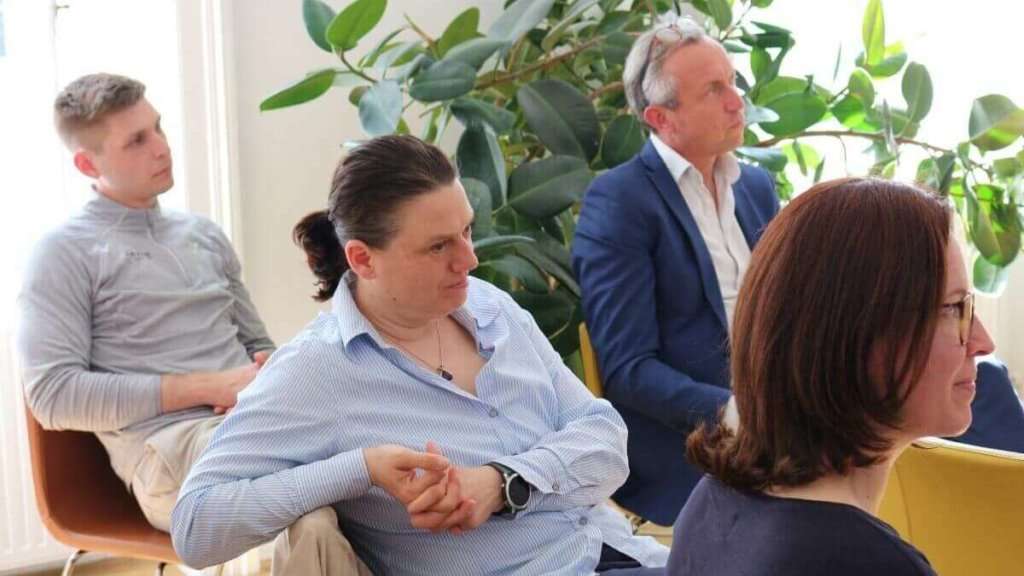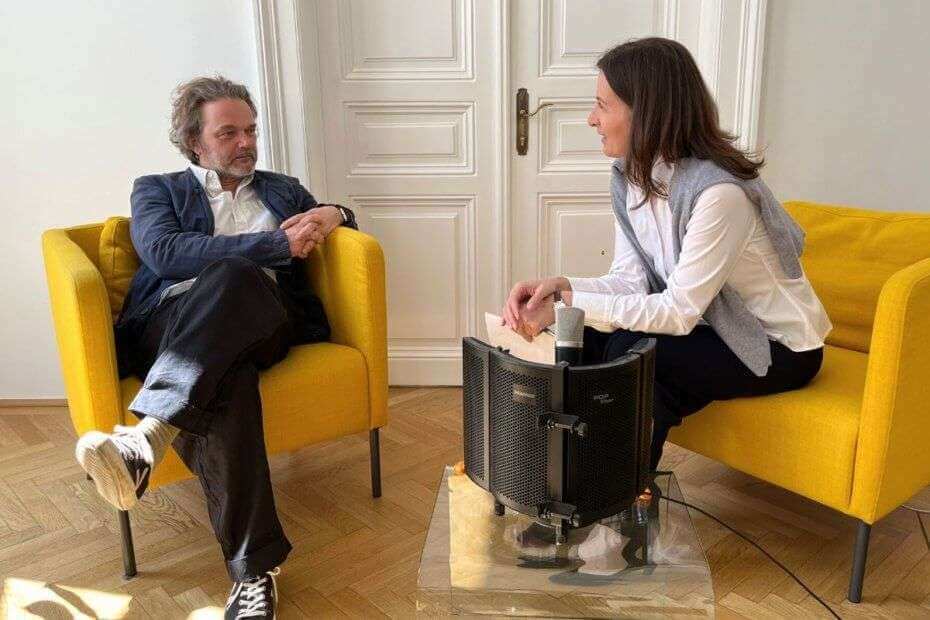Let’s talk business! At Konsultori, we believe in the power of exchange. That’s why we created the Konsultori Club: to create a space for professional dialogue. What do we want to talk about? About the everyday problems of entrepreneurs. The most pressing questions and the best success stories. The aim is to facilitate discussions and knowledge sharing in a smaller group of entrepreneurs and founders.
We started with the hot topic of OKRs, led by our expert Michael Kubiena. Our guest also came from the HR environment: Agnes Szabo shared her practical experience and valuable tips. Unfortunately, we cannot present the entire event here. But we have collected the most important questions and some key insights about OKRs and also prepared a small e-book on OKRs for you.
OKRs: Objectives & Key results
Are you looking for an effective instrument of participative leadership?
1. “Mastering the mess” – are our organizations chaotic, really?
No, but the context we are operating in has become rather turbulent and unpredictable, in other words: messy, and therefore very demanding. We are faced with complex, frequently changing challenges. All that results in organizations feeling overwhelmed.
2. Are OKRs the silver bullet?
Unfortunately, there are no silver bullets when it comes to the challenges of today’s organizations. But when done professionally and sincerely, OKRs can be an integral part of mastering such challenges:
- They help you to align people with strategy and people with people.
- They do so by making visible who is doing what and with whom and
how everyone’s contribution can feed into the bigger picture of your organization’s strategy or, in the absence of an explicit strategy, into your priorities.
3. In which areas can OKRs be especially effective and meaningful?
OKRs are first and foremost a goal-setting approach; one which is especially suited for the complex, multi-faceted environment many companies are operating in. They help you to bring strategy into the organization and make it happen, by tying goals directly to strategy. And they are a very powerful instrument of participatory leadership since they emphasize shared responsibilities and ownership.
4. OKRs mean no hierarchy?
Organizations imply and need a division of labour and responsibilities. Hierarchies are one way of doing that. Leadership certainly remains relevant but its role and focus are changing, from the sole decision-maker who is involved in every detail, every decision and process and thus frequently becomes a bottleneck; to a facilitator, someone who builds and provides a framework along which everybody can contribute.
5. Which effect do objectives have? What makes a difference?
Objectives are an image of what the future should look like. At times this can be very specific, at other times such an image will be still rather vague. What goals and objectives do, is provide direction and guidance. Goals do not need to be individualized; much rather ambitious goals require the contribution of different actors. We need to recognize that by assigning goals to more than just one person or department.

6. How should we measure progress?
We must not be overly fixated on making everything quantifiable by all means; that includes goals and progress towards them. If they are quantifiable, great; then KPIs (Key Performance Indicators) are an appropriate way of setting targets and evaluating progress. But that usually requires that you also have data about past performance and metrics and tools in place. Often, especially in emerging organizations, that is not the case.
Qualitative indicators, such as Key Results and milestones, are potentially better suited to mark progress towards an objective.
7. How does this translate into the everyday of the organization? Can you give a practical example?
Let’s imagine an organization which does not yet have an explicit strategy; what it does have (although in the founder’s mind only) is priorities and plans for the next 12 to 24 months.
Example: We want to expand internationally!
If you are serious about OKRs, it is necessary
- To articulate such priorities and
- To share them with the team In a kick-off
- They will undergo a joint reality-check
- They will be narrowed down and specified
Which markets are relevant for our business?
How do we evaluate the potential of these markets?
What are the biggest challenges there? Do we have the required capabilities in order to really go for it?
- Vague plans can thus become ambitious medium-term objectives
Specification of 1 or two target markets, time horizon
- Via key results, progress towards the objective will be outlined
Market research
Investigation of the legal situation
Identification of potential local partners
- Key is to attach clear responsibilities to each objective and key result
- These responsibilities can be shared among different actors
- Since ambitious goals and complex challenges require the collaboration of diverse competencies
Optional: establish a project team comprised, e.g., of Marketing, Legal, and HR; with the CEO as a project owner

8. Does everyone (individual or team) need to have their Key Results?
Objectives around innovation or sustainability are great examples to illustrate how OKRs function: Both topics need the expertise, contribution and especially the collaboration of different parts (individuals, teams) of an organization. The Objective is shared among them, the Key Results originate from different actors. Key is the joint responsibility.
9. How do we motivate our employees to implement OKRs?
I believe that the method and process as such, that is: working together on the identification and agreement on both, objectives and key results, is already a source of energy and commitment. The entire team learns collectively to gradually and continuously improve the process and the outcome. And, last but not least, shared responsibility also allows for setting more ambitious goals and for more confidence in the joint capability to make them happen.
10. How do we avoid a HIPPO tendency (Highest Paid Person’s Opinion)?
Here, too, open communication and the joint process are instrumental. If leadership is not serious about it and if – despite an outward commitment to a participative OKR process – actual goals are decided elsewhere, then you better skip the entire exercise and save everybody the time and effort. But that way you won’t be able to attract and retain employees who think creatively and want to take ownership and responsibility.
#OKRs Read the e-book!

